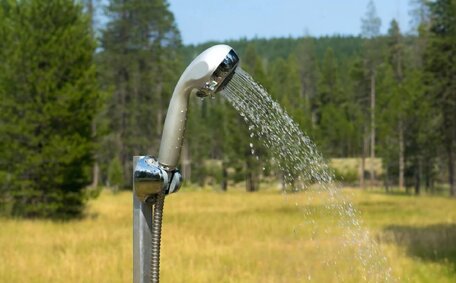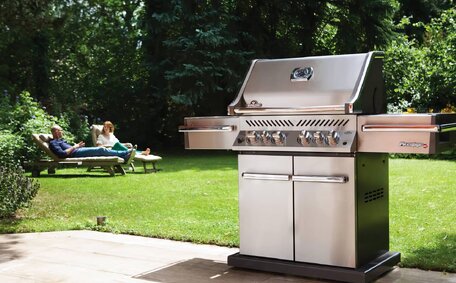Knowing when it’s time to upgrade
Several signs suggest that it’s time to consider upgrading your ageing hot water system:
- The system is beyond 8 to 10 years of service. Most hot water systems need replacement around this timeframe owing to deterioration and reduced efficiency.
- A noticeable decrease in water pressure and flow rates can signal the need for a system upgrade.
- Unusual noises emitted by your system during operation may indicate internal issues.
- Regular malfunctions and expensive repair bills highlight the need for more sustainable and efficient hot water solutions.
- A sudden increase in energy bills, despite stable consumption patterns, points to system inefficiency.
Upgrading to a more efficient unit not only enhances reliability but also cuts operating costs. Contemporary systems can revamp your electric hot water setup, incorporating heat pump technology and solar innovations, frequently with appealing rebates.
Consult with a professional plumber to evaluate the efficiency of your hot water system and discuss potential upgrades. They will assess if a pump water heater installation is a more cost-effective alternative, offering long-term savings over constant repairs for an older unit.
Signs your water heater needs replacing
- Age over 10 years: Systems typically remain efficient for 8 to 10 years, after which performance wanes. Upgrading an older unit can make your hot water system more efficient and improve reliability.
- Strange noises or leaks: Clanking, dripping or gurgling sounds can signal internal corrosion and part failures.
- Rusty/discoloured water: Internal tank corrosion, frequently due to a deteriorating anode rod, can lead to contaminated water.
- Lukewarm showers: Inconsistent water heating despite normal usage points to a failing system.
Compare the ongoing repair costs and inefficiency with the investment in a new, energy-efficient water system. Ultimately, installing a new system can deliver superior value, heightened comfort, and cost savings for your home.
Seek advice from an expert plumber on a hot water system upgrade tailored to be cost-effective and suit your home’s needs.
Comparing types of water heaters
Storage water heaters
The most common type hot water tanks are traditional units that heat and store water in an insulated tank. Their simple designs come in electric gas hot water models or electric-resistance variants that heat water promptly on demand.
Heat pump water heaters
Heat pump systems utilise surrounding air to transfer heat into the water, stored in an insulated tank.
These systems use heat pump technology that operates with less energy per unit of hot water produced and emits fewer greenhouse gases, ranking them among the most efficient and environmentally friendly options available. Heat pump water heaters typically boast efficiency ratings around three times that of conventional electric water heaters and may be eligible under the veu program for rebates in many states.
Tankless water heaters
Although tankless hot water heaters have higher initial costs, they can save more money on your energy bills over the long term.
Gas-powered tankless water heaters with at least 82% efficiency offer maximum energy savings.
Solar water heaters
Solar hot water systems utilise the sun’s free heat to warm water, potentially catering for up to 90% of a home’s hot water energy demands. Solar water heaters have the greatest potential for savings but require additional booster heat on cloudy days and during periods of peak demand.
These systems capture sunlight using solar collectors and circulate the heat into an insulated tank.
A licenced plumber can help determine the most suitable hot water system for your home’s needs and budget. Comparing factors like cost, efficiency, usage patterns and sources of heat input will narrow down the best option for potential energy savings.
The installation process
Installing your new hot water system is a task for qualified professionals. Here is an overview of the typical installation process:
1. Consultation
Schedule an in-home consultation with a licenced plumber. They will assess your heating setup, including your heating water requirements, household usage, and provide recommendations on the optimal system type and capacity to manage your heat use effectively.
2. Permits and Rebates
Your plumber will handle the necessary permits and investigate if you can rebate up your investment through available incentives for your new high-efficiency systems.
3. Installation
During installation, the old hot water tank is meticulously removed to make way for the new unit. Your hot water unit is positioned, assembled, and connected to existing plumbing and electrical. The plumber will rigorously test your hot water system’s fittings and confirm proper function prior to cleanup.
4. Follow-Up
The plumber should provide instructions on use and maintenance, ensuring you get more than expected from your new system. Book yearly maintenance checks to maintain your upgraded hot water system’s efficiency over time.
Upgrading your hot water system is a major project best left to qualified professionals. Do your research to find an experienced local plumber you trust.
Achieving energy and cost savings
Upgrading to a more energy-efficient hot water system can lead to significant long-term cost savings. Heat pump systems and solar water heaters stand out as more energy efficient, achieving 30-60% better efficiency than traditional electric resistance or gas storage tank systems.
By upgrading your electric hot water system to a more energy-efficient model, you could trim significant amounts from your electric bill each year. Over a 15-year lifespan, the upgrade earns back its higher initial cost multiple times over.
Beyond cost savings, upgraded systems provide added benefits:
- Improved reliability and fewer breakdowns
- Unlimited hot water supply from tankless heaters
- Lower carbon footprint from heat pumps or solar
- Potential rebates and incentives
Consult a licenced plumber for a comprehensive evaluation of your current hot water usage and needs. They can provide custom recommendations on the best type of hot water system and capacity to maximise efficiency and suit the specific water your household requires.
The higher upfront investment pays off over time through energy savings and improved comfort and convenience. Contact us today to learn more about the benefits when you upgrade your hot water system.





